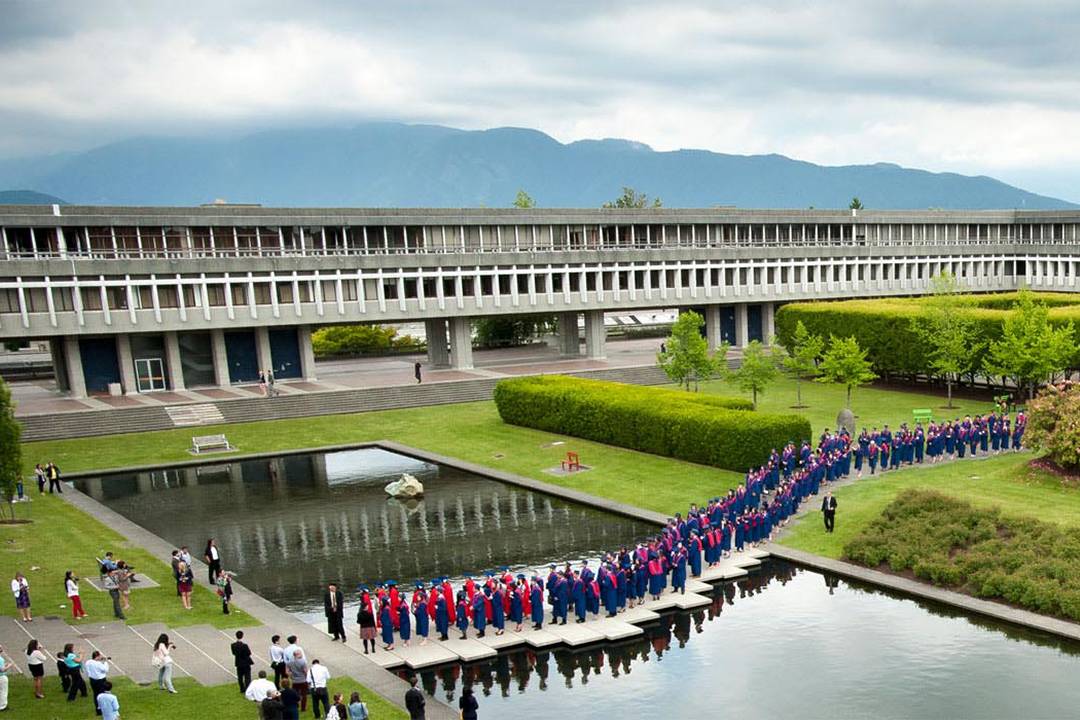
postgraduate
DegreeMaster of Resource and Environmental Management Planning
It looks like the University no longer offers this program.
Quick facts
-
Annual tuition (2022)
$5,838 CAD
-
Application fee
$125 CAD
-
Duration
2 years
-
PGWP
3 years
-
Min GPA
3 out of 4.33
These are mandatory and all come with course.
These items are optional and you can choose them as you wish after applying for the course.
Deadlines
Overview
Master of Resource and Environmental Management Planning
This program is not offered anymore.
Some students enter directly from undergraduate programs, but most have had some work experience between their undergraduate degree and REM.
Relevant disciplines of undergraduate training or experience include fields such as biology, engineering, chemistry, forestry and geology, as well as business administration, economics, geography, planning and a variety of social sciences.
Some courses are scheduled in the evenings or for week-long blocks. The optional Co-operative Education Program allows students to work in a private organization or a resource management agency to gain first-hand experience while obtaining their degree.
Students take an integrated sequence of courses in complementary fields, pursue further courses in their area of specialization in the School and throughout the University, and complete a research project on a topic involving more than one traditional discipline.
The aim is to increase familiarity and competence in:
understanding the dynamics of natural resources, the strategies and techniques of natural resource and environmental planning and management, and the biological, physical, social, economic and institutional implications of resource decisions.
Students also become familiar with various quantitative methods of analysis and aid in decision making.
In the field of natural resources, in particular, it is important that academic programs stress problem-solving as well as creative and critical thinking skills, rather than focusing solely on subject matter such as fisheries, resource economics, or forestry.
Students in the thesis stream complete seven courses and a Masters thesis.
Both the Project and Thesis MRM streams require high-quality research and writing, but the thesis stream is more research-intensive, producing a final thesis document that is larger in scope than a project and makes a distinct original contribution to the academic knowledge base in their field.
Estimate your cost
Residency
Count of person
$15,574
Total costs
yearly
Details
| Cost of living | 1 person | $6,924 |
| Accommodation | 1 bed room | $9,736 |
| Tuition | 1 person | $5,838 |
Hourly wage
Min wage
16.75 CAD / 1 hour
in Canada every student can work 20 hour per week
Required documents
1. Transcripts
2. CV
3. Statement of Interest
4. Three referees
5. Proof of English
Language requirements
IELTS
6.5
listening
6.5
writing
6.5
speaking
6.5
reading
TOEFL
20
listening
20
writing
20
speaking
20
reading
PTE
60
listening
60
writing
60
speaking
60
reading
Cambridge
-
listening
-
writing
-
speaking
-
reading
Academic background and requirement
Applicants are normally required to hold an undergraduate degree in a related field with a minimum of 3.0 GPA on SFU’s 4.33 scale (B average or 70%). Applications from students with other degrees or with equivalent professional training and experience will also be considered. Statistics Requirement Applicants to the School of Resource and Environmental Management must have completed an undergraduate course in parametric and nonparametric statistics. It is expected that new students will have acquired and be familiar with the following concepts/methods prior to entry in the School: describing distributions graphically and quantitatively (e.g. mean, median, standard deviation) basic concepts of statistical inference (e.g. calculating test statistics and comparing p-values with an alpha value) basic inferential tests (t-tests, simple ANOVA, chi-square) simple linear regression and correlation.
Burnaby weather chart

Related Courses
Related courses in univly



